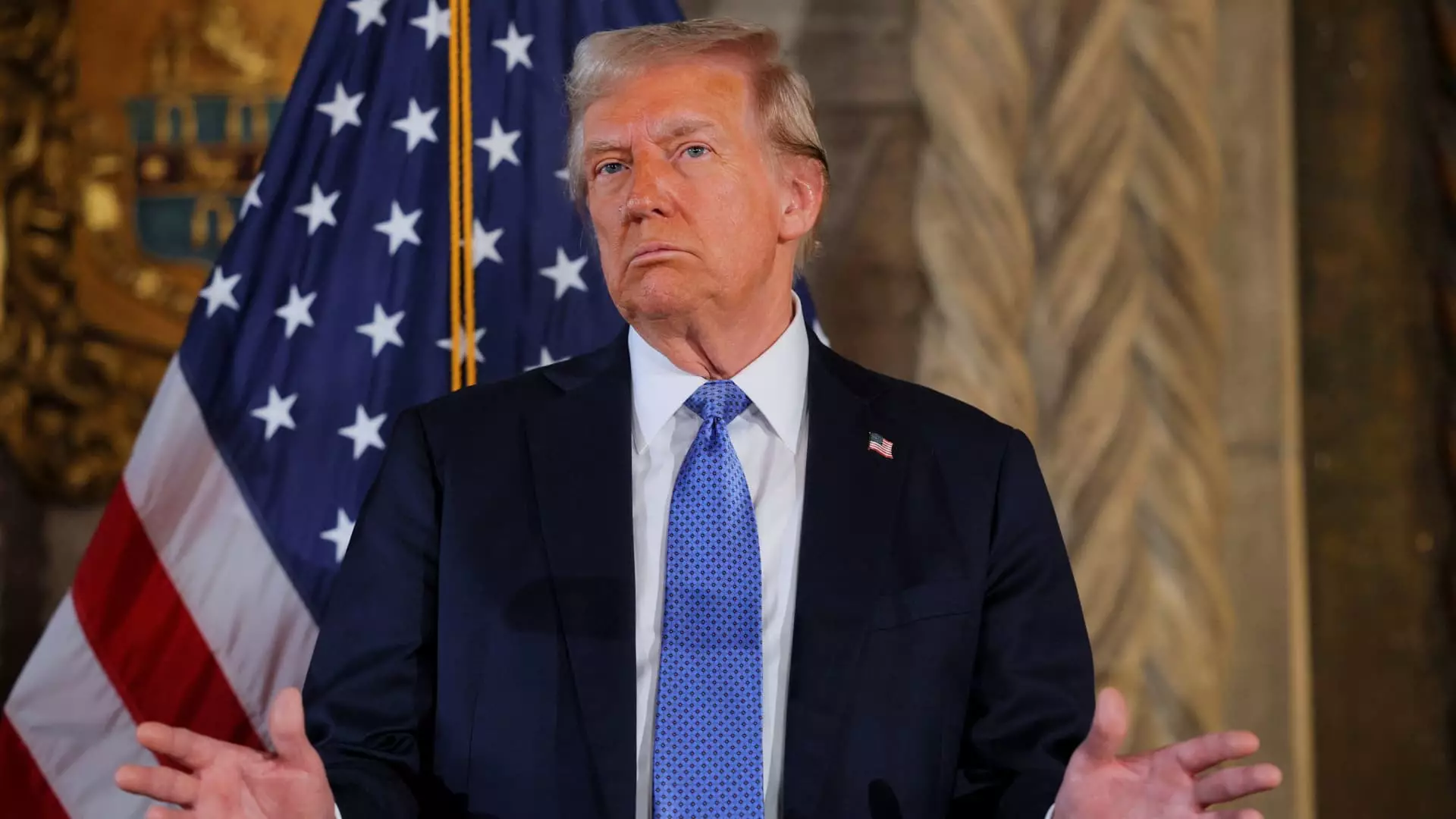In the wake of the political and economic shifts marked by U.S. President-elect Donald Trump’s administration, a new chapter in transatlantic trade policy is unfolding. Trump’s recent statements regarding the European Union’s trade deficit with the United States have spurred discussions surrounding energy purchases and potential tariffs. Examining the ramifications of such rhetoric reveals the complexities and tensions that lie ahead in U.S.-EU relations.
On a late-night post on his Truth Social platform, Trump made headlines by declaring that the EU must significantly increase its purchases of U.S. oil and gas to alleviate what he described as a “tremendous deficit.” According to U.S. data, the trade deficit stood at an alarming $131.3 billion in 2022, a number that has clearly set the stage for Trump’s push for a recalibrated trade relationship. The implications of such strong words cannot be understated; they signal a potential reorientation of U.S. trade policies that would place heavy emphasis on energy exports.
Trump’s approach—demanding energy commitments in exchange for avoiding tariffs—illuminates a transactional mindset that has been a cornerstone of his political narrative. It raises pivotal questions about the practicality of such demands, especially when considering the intricate web of global trade dependencies.
The European Union’s response to Trump’s ultimatum has been notably cautious yet strategic. Various EU officials have expressed an understanding of the geopolitical maneuvering at play, suggesting that they anticipated such demands from the incoming administration. The sentiment was further echoed by the European Council President António Costa, who indicated a strong commitment to strengthening transatlantic ties despite challenges.
However, the EU remains wary of being cornered into an asymmetric trade agreement that blurs the lines between energy procurement and tariffs on manufactured goods. As discussed by former Italian Prime Minister Enrico Letta, the proposed trade dynamics risk conflating distinct economic issues. Letta’s analysis underscores the need for the EU to adopt a measured strategy in response to Trump’s integrative yet potentially flawed approach.
Trump’s threats of tariffs are not isolated incidents; they form part of a broader narrative that has seen him engage with various trading partners, including China, Mexico, and Canada. His presidency marked a shift toward protectionist policies that prioritize American economic interests, but the implications of such policies often reverberate beyond American shores.
One of the key concerns raised by economists is the potential for escalating tariffs to impact domestic inflation negatively. By fueling price hikes on imported goods, this strategy could ultimately burden the very consumers it aims to protect. Assessing the balance between national interests and global market stability presents a significant challenge in this new trade landscape.
While the U.S. currently leads as a key destination for EU exports, making up 19.7% of revenue, the EU has indicated its willingness to purchase more U.S. energy, particularly in light of the ongoing need to reduce dependency on Russian liquefied natural gas (LNG). European Commission President Ursula von der Leyen recently emphasized that engaging in negotiations for U.S. energy imports would be both strategic and economically viable as the EU seeks to secure its energy future.
As Trump prepares to assume office in 2025, the uncertainty surrounding his trade policies remains palpable. The diplomatic landscape is fraught with the potential for retaliatory measures, particularly if the EU feels pressured into yielding to U.S. demands. Both sides will need to tread carefully to navigate the complex interplay of energy dependence, tariff strategies, and the broader implications for global markets.
Ultimately, the evolving discourse surrounding U.S.-EU trade relations under Trump’s administration will demand astute diplomacy, strategic foresight, and an understanding of mutual economic interdependencies. As Europe contemplates the path ahead, it must also consider the long-term sustainability of its economic partnerships while ensuring that its interests are protected on the global stage. This era of heightened transactional negotiation could redefine how nations engage with one another moving forward, with the stakes higher than ever.


Leave a Reply